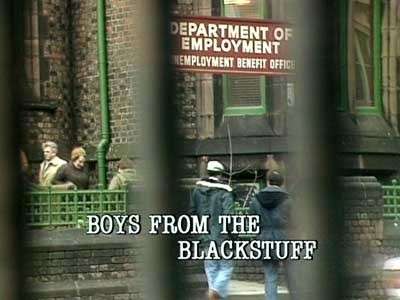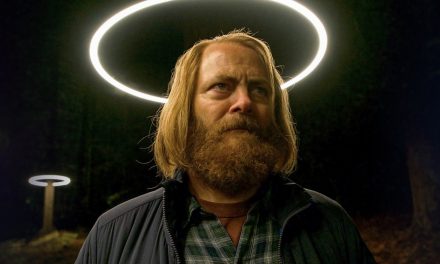There’s been quite a bit of trending lately on Facebook about saving the BBC. I’ve done my fair bit of sharing a picture of the wonderful David Attenborough leaping to the broadcaster’s defence. Others have shared the BAFTA speeches which this year were full of praise for the corporation. This is perhaps no surprise since several programmes that won were made for or indeed by the BBC. What became clear in the speeches was how much the winners valued the BBC as a public service broadcaster: able to take the commercial sector to task, required to deliver certain things that probably wouldn’t be made otherwise, and able to keep the ‘quality’ up. All of this, of course, sounds unsurprisingly familiar.
The social-media campaigning has been happening within the context of the BBC Charter Review. For those of you who live further afield or who have somehow managed to escape it (well done), several leaks have suggested what the government is supposedly planning for the BBC which, if true, indicates just how hostile towards the BBC the current government is. As hinted at in the above clip, John Whittingdale, the secretary in charge of the process, has made his antagonism particularly evident. The process has also indicated how corrupt the government seems to be, considering that the right-wing press, whose owners are also involved in commercial television in the UK, apparently sit on photos which could severely compromise Whittingdale’s reputation. To put it bluntly, it seems that people with ulterior motives are happily working towards getting rid of the BBC. [1]As a European, all I can say is, probably in unison with all other Europeans reading this, ‘Whaaaaaat?’
In this blog, I want to go a step further, however, and not just defend the BBC. (I am German – I know it’s one of the greatest broadcasting institutions in the world. Trust me, just go to Germany, or indeed most other European countries, and watch television or listen to the radio. Alternatively, speak to some US citizens about how great HBO really is if, that is, you can afford it.) No, I want to defend broadcasting itself. And I mean it literally: broadcasting as casting (seeds or thoughts or programmes) widely, broadly.
There are two moments of experience which have given me the motivation to demand that the airwaves be restricted and the internet be cut. One of them was my last lecture of this academic year. It was supposed to be a 45 minute ‘this is what we covered – this is what we didn’t cover – what did you learn?’ summary for the 20 of 70 students that turned up that day.[2]The lecture is 2-4pm on a Friday, followed by seminars from 4-6pm. I kind of understand the students’ lack of motivation to attend. But, probably spurred on by one of these wonderful students who used a rather unflattering word to describe the current government (and it wasn’t a swearword), I ended up critiquing past conceptualisations of audiences as active producers or prosumers who know what they want and get it from wherever they need to go… you know the story. Drawing partially on the useful assessment of Media Studies 3.0 by Toby Miller which I consider to be quite optimistic, and partially on a shortish email exchange initiated by Martin Barker about the potential return to Marxist audience studies as well as numerous other pieces by scholars such as John Downey and Natalie Fenton, I ended up going into a rant that lasted 45 minutes about the terrible state that our media landscape is in and how we as audience might be able to get what we want, but that that isn’t particularly good for us. This, I know, is probably not really something new.
It was a fun lecture. I got the students to think along with me as we talked about our social environment which is based on place and is strongly connected to our political affiliation, our media consumption and the people we get to know through it, and the fact that as prosumers most of the time we just stay with what we like. And then we saw the correlation between this media world and a government that, as my colleague Hannah Andrews said to me today, takes us straight back into the 1880s with its talk of the ‘deserving poor’ and hard-working people, etc., and the appeal of figures such as Jeremy Corbyn and Bernie Sanders who might be wonderfully principled but have been backbenchers all their, let’s be honest, rather long lives for specific reasons.[3]Did I mention I was German? We do continue to like our Realpolitik, even if the word got a rather nasty name under Bismarck.
The other event that cemented the conviction that was born that day happened on Facebook when I was actually asked – not in those words, of course – to stay in my public sphericule. In my final lecture and as a result of that experience, I came to the conclusion that the only solution to our political mess would be to return to a 4, maybe 6 channel universe [4]For selfish reasons I want to keep BBC4 and E4, but the Radio Times has already gotten rid of Channel 5 on the main broadcaster pages anyway, so I assume it’s practically closed? and hope that there would be another strike closing down the commercial channels every 12 months or so. We could watch something together again for once. And I think it is high time that we do. The internet gives us the world in bitesize. So we can listen to a speaker in a public debate without having to hear the responses to it. We can cut out the questions of the journalist who asks the speaker to account. It’s much harder to do that on Question Time when it goes out live. But that, on average, is only watched by less than 3 million people.
But it’s not just political panel shows that we would benefit from watching together. As Christine Geraghty’s interesting blog indicated last week, the TV drama that we might have to expect in the future might be ‘problematic in a number of ways’. As she indicates, The Night Manager (AMC, BBC, 2016) seems to have ‘no morals and no politics’ [5]At another point, she used the word ‘vacuous’ in order to describe the love interest. For me, that was a good word to describe the whole production. and yet had critics and audiences rave about it. Compare that to one of the big successes of the 1980s which was enthusiastically leapt up by audiences as part of their political campaigning through the catch phrases of ‘Gizza Job’ and ‘I can do that’ (Boys from the Blackstuff, BBC, 1982). Or go further yet when programme makers directly decided to intervene in public debates of ‘spongers’ versus, hm, ‘deserving poor’ and gave us a TV drama called The Spongers (BBC, 1978). Similarly, Cathy Come Home (BBC, 1966) was born out of the same public debates that brought us Shelter, but made the British public at large (and politicians) realise just how easy it was to end up homeless as well as changing the face of what a homeless person might look like. And, my word, is it time that we all sat around the telly to watch a drama about homelessness again.
So: restrict the airwaves and close down the internet. It’s time that we listen to each other, and ask our politicians for a reasoned debate rather than one of fear and fantasy (as seems to be the case with the EU Referendum debate). And it’s time that we empathise more widely with people again, particularly those who have continued to lose so much since the late 1970s.
Elke Weissmann is Reader in Film and Television at Edge Hill University. She is currently considering changing this to Reader in Television and Film, however. Her books include Transnational Television Drama (Palgrave) and the edited collection Renewing Feminisms (I.B.Tauris) with Helen Thornham. She is vice-chair of the ECREA TV Studies Section and sits on the board of editors for Critical Studies in Television. She migrated to the UK in 2002 after realising that German television was as bad as she remembered.
References
| ↑1 | As a European, all I can say is, probably in unison with all other Europeans reading this, ‘Whaaaaaat?’ |
|---|---|
| ↑2 | The lecture is 2-4pm on a Friday, followed by seminars from 4-6pm. I kind of understand the students’ lack of motivation to attend. |
| ↑3 | Did I mention I was German? We do continue to like our Realpolitik, even if the word got a rather nasty name under Bismarck. |
| ↑4 | For selfish reasons I want to keep BBC4 and E4, but the Radio Times has already gotten rid of Channel 5 on the main broadcaster pages anyway, so I assume it’s practically closed? |
| ↑5 | At another point, she used the word ‘vacuous’ in order to describe the love interest. For me, that was a good word to describe the whole production. |







